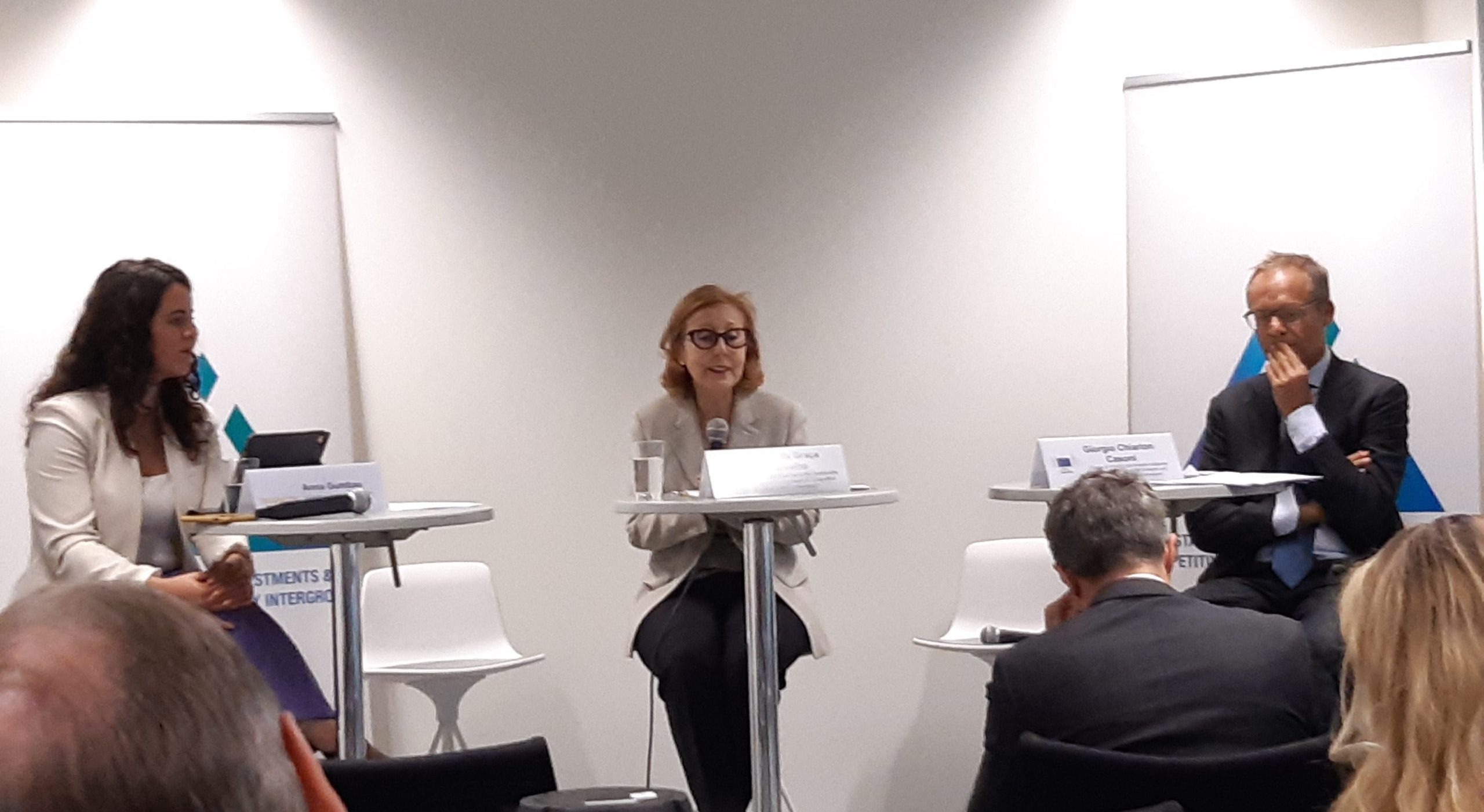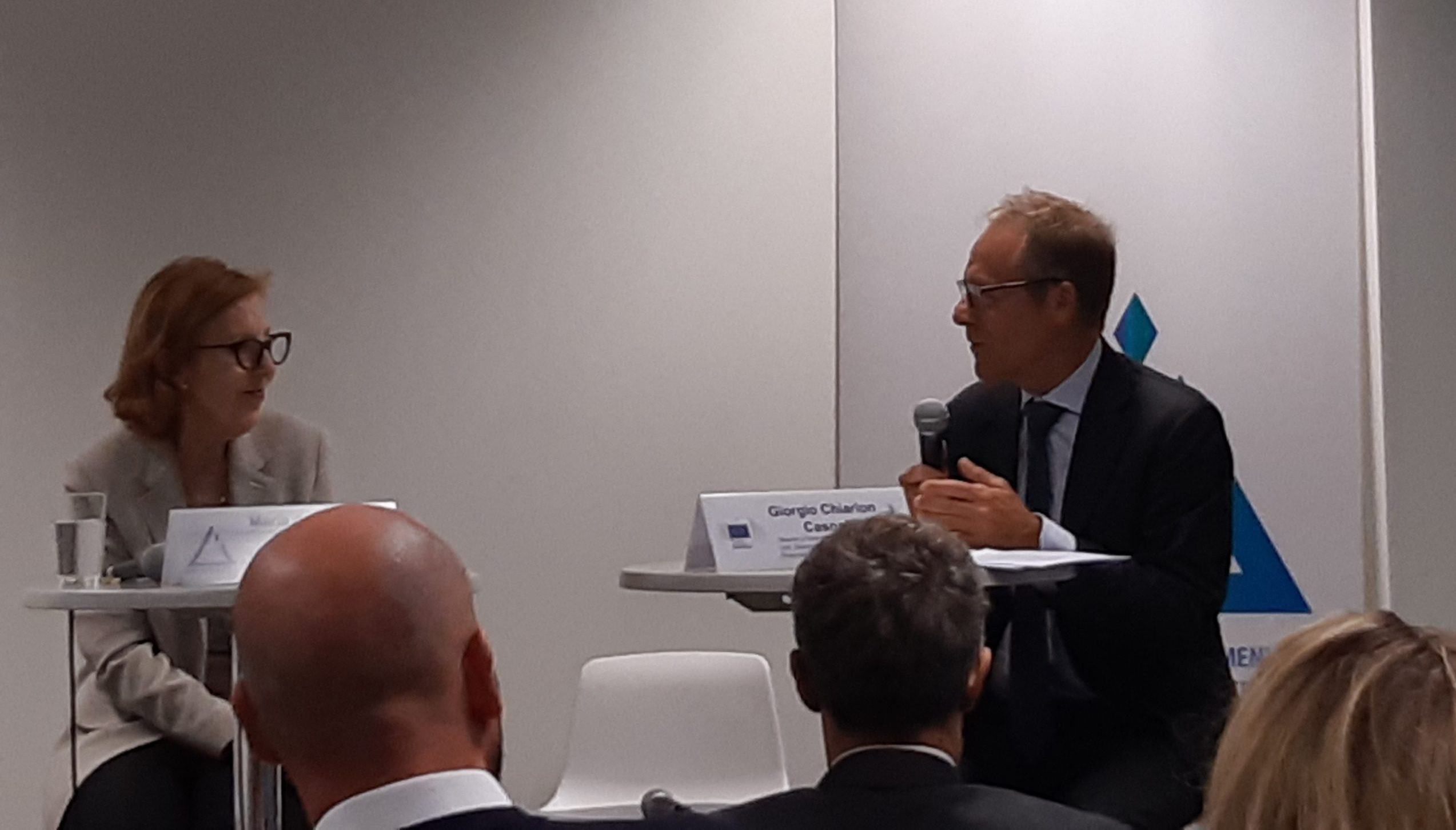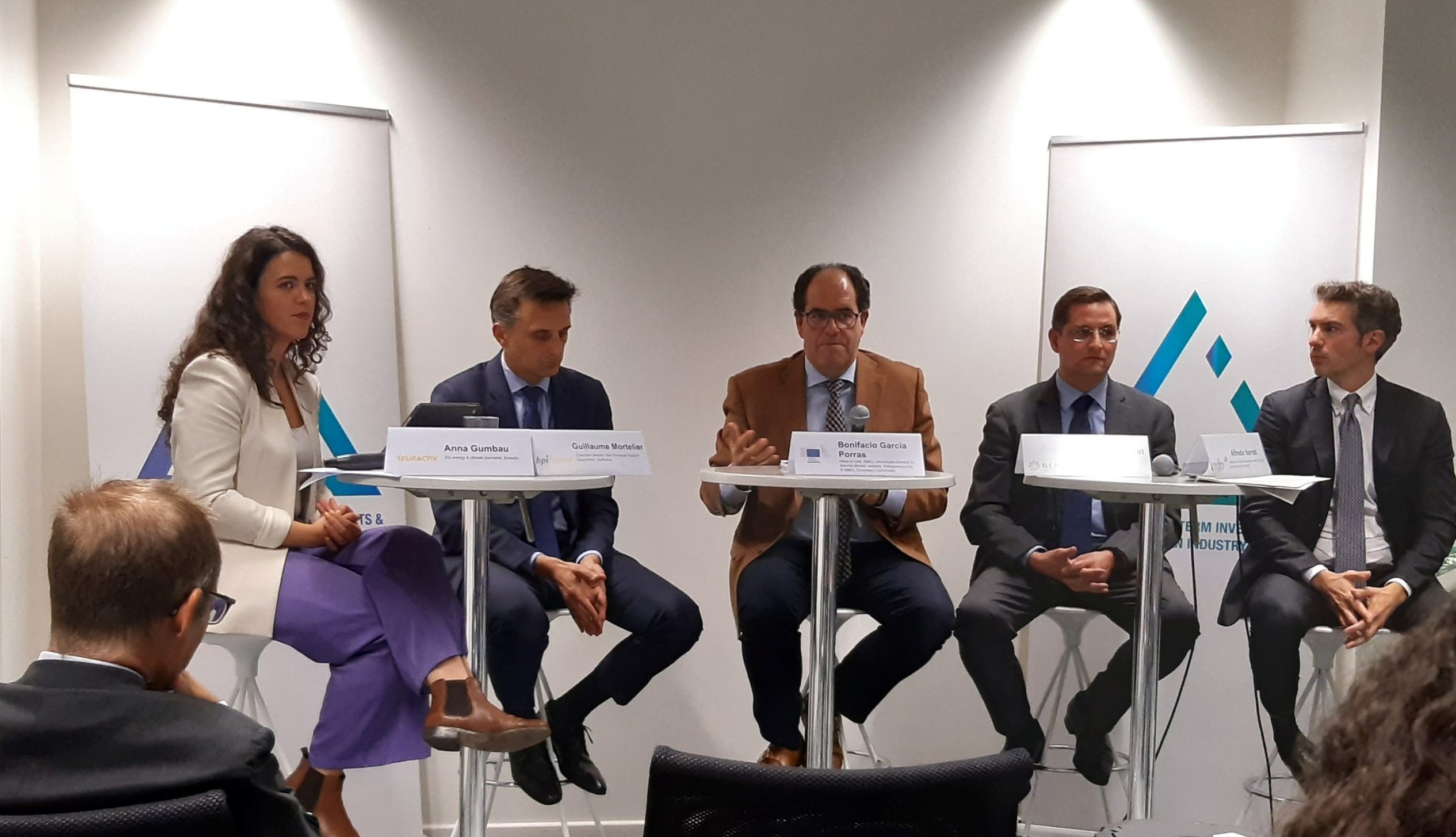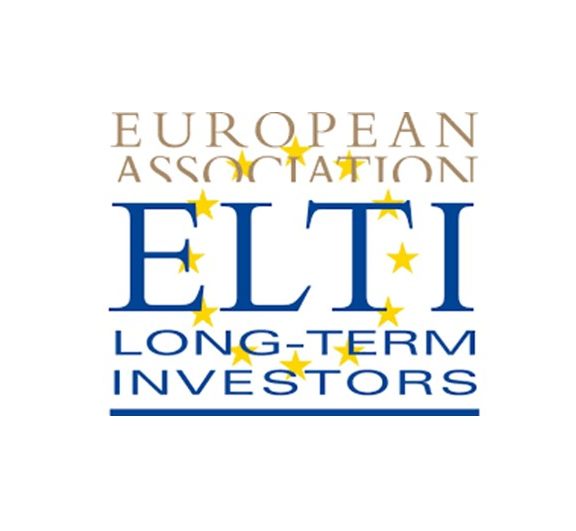Supporting industrial SMEs in contributing to the Green Deal objectives

On Monday 11th of October, the Sustainable, Long-term investments & Competitive European Industry Intergroup in the European Parliament held its conference on “Supporting industrial SMEs in contributing to the Green Deal objectives Advisory services to SMEs as a catalyst for a green reindustrialization in Europe” in the offices of the European Long Term Investors Association (ELTI), rue Montoyer 51- Brussels. Chaired by MEP Maria da Graça Carvalho and overseen by Giorgio Chiarion Casoni, Director of InvestEU and financial institutions Unit, DG ECFIN in the European Commission, this event focused on the need of non-financial support to SMEs to unleash their capacity to innovate, prepare for future disruptions, and produce tomorrow’s goods and services in a more sustainable way, in a context where SMEs are both the backbone of the European economy, and responsible for around 60% of all corporate greenhouse gas emissions in the EU.

- MEP and Co-Chair Maria da Graça Carvalho opened this high-level conference by welcoming the return of the Intergroup in person format. While underlining that the political and economic context was particularly tough for SMEs, the MEP identified several priorities to allow for supporting industrial SMEs, in particular favoring access to financing, reducing the complexity of the regulatory landscape (GDPR, DMA, DSA…), provide better infrastructures (in particular in the sectors of energy, digital, and transport), improve the technological skills of the EU citizens, targeting women in particular.
- As part of the event’s keynote speech, Giorgio Chiarion Casoni, Director of InvestEU and financial institutions Unit, Directorate-General for Economic and Financial Affairs, in the European Commission, recalled the timeliness of the InvestEU programme to maintain a high level of investment in the EU at a time of high inflation, energy crisis and exit from the pandemic. He mentionned the need of the European Commission to rely on the networks of experienced entities such as the EBRD, the EIB and National Promotional Banks and Institutions to provide advisory to SMEs. The European Commission has already signed guarantee agreements with the EIB, the EIF and Cassa Depositi e Prestiti (for venture capital financing). 50 operations have already been approved. The SMEs and small mid caps are the core of the beneficiaries of InvestEU, thanks to a dedicated SME window dedicated to sustainability, green tech, space and other sectors. Giorgio Chiarion Casoni underlined that one of the main challenges of the InvestEU advisory will be to design an offer fit for each Member States with very diverse market gaps.

The panel discussions was moderated by Anna Gumbau, EU energy & climate journalist, at Euractiv.

- Bonifacio Garcia Porras, Head of Unit, SMEs, Directorate-General for Internal Market, Industry, Entrepreneurship & SMEs, European Commission underlined the two announcements made by the European Commission president Ursula Von der Leyen during her State of the Union Speech that will be fundamental for supporting SMEs: the relief package (comprising the revision of the late payments directive, to make a better legislative environment, reduce administrative costs, clarify legislation, conduct and “SMEs test” in each impact assessment of a legislative text proposal) and the update of the EU industrial strategy will also be crucial and should focus on creating new industrial alliances, ensure inclusiveness, and increase SMEs resilience.
- Guillaume Mortelier, Executive Director of Non-Financial Support Department in Bpifrance, alerted that the invasion of Ukraine and energy crisis conveyed a situation of assymetric shock accross Europe, as SMEs must cope with different energy prices, in comparison to the COVID shock where impacts where symetric (since every businesses were closed at the same time). This situation has a high impact on SMEs and will probably lead to the closing of several SMEs this year. Bpifrance has selected consultants and helps them work with SMEs in an efficient way. Financing should come at the last stage of the support.
- Alexandre Sevenet, President of NEPSEN, reckonned the difficulty of compliance of SMEs with many legislations (red tape). To engage in a green pathway, a company need to manage varied areas of expertise (life cycle assessment, carbon footprint, circular economy…). An important need of SMEs is to have visibility over the long term to build their businesses, in particular in terms of energy prices.
- Alfredo Varrati, Head of Financial Instruments with EU Funds of Cassa Depositi e Prestiti, mentionned the Italian market gaps identified by desk analysis, that can also be relevant for other parts of the EU, on which the Cassa Depositi focuses its non financial support. In particular, there is a lack of strategy planning (30% of Italian SMEs don’t have a business plan) and too much focus on short term activities. SMEs may lack of managerial approach, that is especially true for family undertakings (2/3 of Italian SMEs owned by a family are also managed by a family). There is also too low invetsment in monetary training and low transparency in financial reporting.
Contact:
Caroline François-Marsal, secretariat@investmentindustryintergroup.eu

